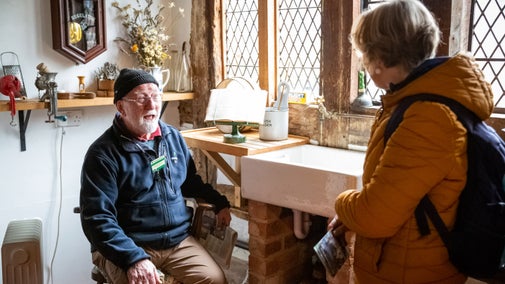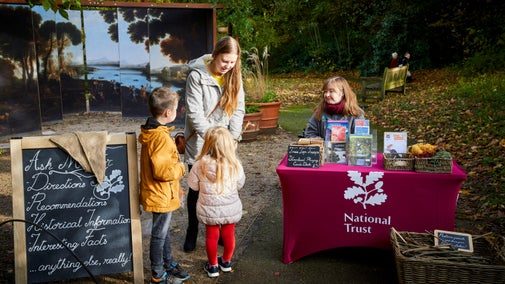
Volunteer
Each year thousands of volunteers join us in caring for all the special places you love.

We care for more than 890 miles of coastline, which provides havens for wildlife as well as beaches for everyone to enjoy. However, rubbish often washes up on our shores. The unusual items found around the country show the sheer scale of the problem but taking part in a beach clean, either in a group or by yourself, can help.
There are volunteer beach cleaning events around the country throughout the year. If you'd like to lend a hand to keep these places special, why not join in?
Woolacombe Beach clean activities, Devon
Silent disco beach cleans at Woolacombe, Devon
Community beach cleans (Porthcurnick), Cornwall
Friends of Poldhu beach clean, Cornwall
Community beach cleans (Pendower), Cornwall
Hemmick beach cleans, Cornwall
Sandilands Great British Beach Clean, Lincolnshire
Take a little time out of your beach day to help keep these places beautiful by doing your own beach clean. Follow these top tips from The Wildlife Trust to stay safe and make the most of your time:
Thank you for helping us keep your favourite beaches clean and tidy. We would like to thank all the visitors and volunteers who have done their bit to clear litter from the beaches we love. All your hard work means the coastal places we look after are safer for wildlife and people to visit.

Cleaning up our coastline has never been more important. The list of the most unusual things found on the beaches we care for shows the scope of the challenge, with rubbish coming from as far afield as Canada, Saudi Arabia and the Caribbean.
Some of the items discovered are decades old, including a ‘Claws’ crisp packet from 1976 and a bottle of rum from post-Prohibition America, both found at Formby near Liverpool.
A council bin travelled 70 miles along the River Nene to Blakeney Point, a peaceful coastal spot known for its population of grey seals. And a cargo lost at sea in 1994 means that thousands of pieces of nautical-themed Lego have been arriving on beaches ever since.
Here are just some of the things that have been picked up by beach clean volunteers in recent years:

Each year thousands of volunteers join us in caring for all the special places you love.
There are hundreds of different ways you can volunteer for the National Trust at historic houses, in the gardens or at the many coastal and countryside landscapes we care for.

These frequently asked questions should give you all you need to know about who can volunteer, what it involves and how to apply.

From beaches to rugged cliffs, saltwater marshes and quaint harbour villages, we look after hundreds of miles of the UK's coastline. Find out more about these special seaside places.

Find out how we look after coastal paths along 890 miles of coastline in England, Wales and Northern Ireland to make sure everyone can benefit.

From tips on saving water to combatting plastic pollution, learn more about our work to protect precious coasts and rivers for wildlife and people, and what you can do to help.
